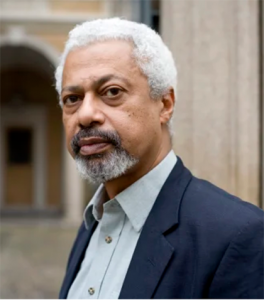Nobel laureate goes into bat for migrants
Nobel Prize for Literature winner Abdulrazak Gurnah has used publicity around his award to criticise the “lack of compassion” of governments that treat migrants as a problem or a threat.
Mr Gurnah grew up on the island of Zanzibar, now part of Tanzania, and arrived in England as an 18-year-old refugee in the 1960s.
 He has drawn on his experiences as a refugee in his ten novels, including “Memory of Departure,” “Pilgrims Way,” “Afterlives” and the Booker Prize finalist “Paradise”.
He has drawn on his experiences as a refugee in his ten novels, including “Memory of Departure,” “Pilgrims Way,” “Afterlives” and the Booker Prize finalist “Paradise”.
Announcing the prize, the Swedish Academy said the award recognised Mr Gurnah’s “uncompromising and compassionate penetration of the effects of colonialism and the fate of the refugee in the gulf between cultures and continents”.
He is only the sixth person born in Africa to win the world’s most prestigious literary accolade, first awarded in 1901.
Mr Gurnah said migration is “not just my story … It’s a phenomenon of our times.”
The 72-year-old novelist said the tribulations faced by migrants hadn’t lessened in the decades since he left his homeland.
“It might seem as if things have moved on, but once again you get new arrivals, same old medicine. Same old ugliness in the newspapers, the mistreatment, the lack of compassion from the government,” he said.
Mr Gurnah said Britain has become more aware of racism over the decades and had “accelerated” discussion of its imperial past. But “institutions, it seems to me, are just as mean, just as authoritarian as they were.”
Gurnah said Britain’s detention of asylum-seekers and the Windrush scandal, in which thousands of long-term residents of the UK from the Caribbean were caught up in crackdown on illegal immigration, “seem to me to be just continuations of the same ugliness.”
Mr Gurnah, who holds British citizenship and recently retired as a professor of literature at the University of Kent, urged governments to stop seeing migrants as a problem to be solved.
“These people are not coming with nothing. They are coming with youth, with energy, with potential,” he said.
“But the scale now is different. I think the difference is that we see how people endanger their lives,
He said he hoped his fiction helped people in wealthy to understand the humanity of immigrants.
“What you can do with fiction is that you can fill the gap. In fact, people can see that it’s actually a complex story mashed up by high-pitched lies and distortions. That culture is somehow necessary to keep ignoring and reject what they don’t want to hear,” Mr Gurnah said.
He said he “stumbled” on his writing after arriving in England as a way to explore both the loss and liberation of immigrant experience.
Nigerian writer Wole Soyinka, who won the Nobel Prize in Literature in 1986, said: “I welcome the latest African Nobel Prize winners in literature as evidence of the success and prosperity of art, especially literature.”
Anders Olsson, chairman of the Nobel Prize in Literature, called Gurnah “one of the most prominent postcolonial writers in the world.”
He said it was important that Mr Gurnah’s roots were in Zanzibar, a multilingual place that was “international long before globalisation”.
“His work gives us a vivid and highly accurate picture of another Africa that is not well known to many readers,” Mr Olson said.












